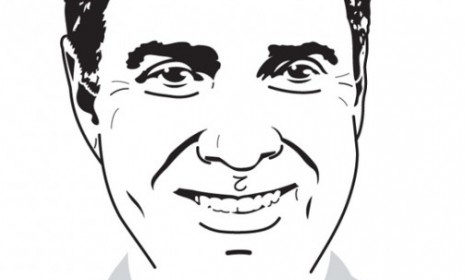How Facebook is reinventing organ donation
Thousands of Americans die each year waiting for heart, lung, and kidney transplants that never materialize. Mark Zuckerberg is intent on changing that

A free daily email with the biggest news stories of the day – and the best features from TheWeek.com
You are now subscribed
Your newsletter sign-up was successful
What do you use Facebook for? To keep up with friends, share pictures of your kids, or pass around the latest silly video? What if I told you that you can now use Facebook to save lives?
As of last week you can do just that.
Facebook has introduced a new "status update" that allows you to proudly share with all your friends your intent to be an organ donor. Not already registered as a donor with your state? No problem. With a few clicks, Facebook ushers you to the appropriate registry, where you can quickly make it official. With a permanent and prominent display on your Facebook site, you are telling your friends that you intend to give unselfishly to others, so that they may live a healthier life. Your personal commitment just might encourage each of your (on average, 190) friends to consider doing the same.
The Week
Escape your echo chamber. Get the facts behind the news, plus analysis from multiple perspectives.

Sign up for The Week's Free Newsletters
From our morning news briefing to a weekly Good News Newsletter, get the best of The Week delivered directly to your inbox.
From our morning news briefing to a weekly Good News Newsletter, get the best of The Week delivered directly to your inbox.
This small tool is no mere novelty; it will save lives.
This very second, more than 113,000 suffering people in the U.S. are waiting for a donated organ. Imagine a small child tied to a dialysis machine, a young mom whose liver is failing from a virus, or a 40-year-old uncle who, without a transplant, will die within six months from a failing heart. Last year, more than 6,600 people died before an organ became available. With better public awareness, most would be alive today.
This small tool is no mere novelty; it will save lives.
The potential supply of hearts exceeds the demand, so long as we increase the number of people willing to donate in the event of an untimely death. Last year alone almost 3,000 people died under conditions that made them suitable for organ donation but had not signed up to be organ donors.
A free daily email with the biggest news stories of the day – and the best features from TheWeek.com
Facebook's bold initiative captures the power of social media in a forum where people tend to be more receptive to new or unfamiliar ideas suggested by their friends. It will help remove the stigma and mystery surrounding organ donation. It will improve the health of Americans. And yes, it will save lives.
This impact is real to me. As a surgeon, I made daily rounds for years on heart and lung patients who died waiting. For every 100 patients we transplanted, as many as 30 others would die before a heart became available.
My intimate experiences with these heart-wrenching realities inspired me to try and educate the public about how each of us can make a difference. In the late 1980s I wrote a book, Transplant, to demystify the whole process of transplantation so that everyone would at least consider becoming an organ donor. I even went so far as to put an organ donor card on the jacket of the book, to be cut out and signed by the reader. That was the old way of reaching the public. Over a two-year period, I may have reached 30,000 or so with the message.
Last week's initiative by the Facebook team reached millions in the course of a few days. And that message will live organically as one's "status" is displayed continually for years to come.
What has the effect been thus far? Since the kickoff on May 1, tens of thousands have registered as donors, flooding state registries with more sign-ups than they have ever seen.
In the 23 states that Donate Life America has data for, there was a 1,570 percent increase in sign-ups. In California alone, 1,239 people chose to become organ donors on May 1; normally the average is 70 per day. Texas typically gets an average of 60 new registrations per day. Following the Facebook organ donor launch, the number was over 1,000.
Thus far, more than 100,000 people are sharing that they are organ donors on their Facebook timeline, meaning that all their friends and family now know that information as well. That will prompt conversations about organ donation and how each of us can potentially make a miracle happen for others.
In my own state of Tennessee, only 35 percent of those 18 or over are registered to be organ donors, mainly through driver's license registration. With the additional firepower of social networking introduced by Facebook, this could quickly reach 50 percent, literally giving life to hundreds of waiting Tennesseans each year.
If you are one of the 900 million people around the world who use Facebook or one of the nearly half of all Americans who have a Facebook profile, take a moment to update your timeline with your intent to be an organ donor. It will only take a moment. Like, post, comment, and most importantly, share. While you do so, you ought to feel quite good about yourself. You're saving someone's life.
Then you can go back to watching silly animal videos.